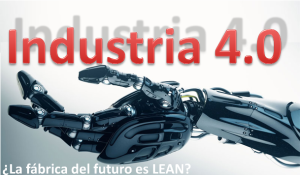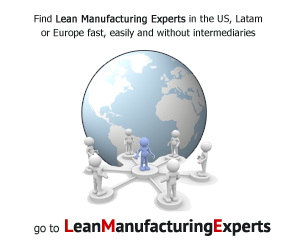Lean Manufacturing and Industry 4.0
 At a succesful industry, one of our core operating principles is sustainability. That means minimizing waste to improve efficiency, add value, and refine the manufacturing process for our automotive products when and where we can.
At a succesful industry, one of our core operating principles is sustainability. That means minimizing waste to improve efficiency, add value, and refine the manufacturing process for our automotive products when and where we can.
Lean manufacturing methodology is still considered a best practice in automotive manufacturing circles, despite increased Industry 4.0 adoption. It’s crucial to our success and that of many other successful, high-yield organizations. However, discussions going forward need to be more inclusive and integrated. More Lean and Industry 4.0, rather than Lean vs. Industry 4.0.
In a recent report, Industry 4.0: Building the Digital Enterprise, PricewaterhouseCoopers defines Industry 4.0 as, “the end-to-end digitization of all physical assets and integration into digital ecosystems with value chain partners. Generating, analyzing and communicating data seamlessly underpins the gains promised by Industry 4.0, which networks a wide range of new technologies to create value.” That said, there is no denying lean manufacturing, which is “tried and true.”
At UGN, we applied lean to our leadership training early on with excellent results. Each of us had designated areas of responsibility for improvement. In my area, I was convinced I knew what was causing a quality problem, but our Sensei insisted I prove what the true issue was.
Frustrated and annoyed with this approach, I videotaped the failure mode I had predetermined, thanks to my history at UGN. The result? My assumption was completely incorrect.
After that experience, I became a full believer in the lean practice of verifying and testing assumptions. Do not rely on historical knowledge. When you convince yourself that you know the answer, you stop learning and won’t continue to look for the real cause of a quality issue.
To continually improve our process and maintain quality, we must evolve. We need to embrace intelligence and analytics to help us set new benchmarks, determine what works, what doesn’t, and what could work more effectively.
That doesn’t mean letting go of lean manufacturing. The lean mindset is invaluable when it comes to sustainability and education in manufacturing. We shouldn’t make sweeping changes in our process based on data alone, so it is important to maintain our lean manufacturing perspective alongside forward-looking Industry 4.0 intelligence.
“Toyota has never looked at [lean] tools and practices as objectives within themselves, but rather as technical solutions to minimize wasteful processes,” said Prof. Torbjørn Netland in his recent article, “Will Industry 4.0 Spell the End of Lean Manufacturing?”
“One of the most promising advances in technology is the possibility of sharing—and acting upon—real-time information in a coordinated end-to-end value chain. This enables a radically improved form of instant, just-in-time pull production,” he wrote.
In 2002, we reconfigured the UGN manufacturing strategy based in large part on Toyota Production Systems. The goal was and is to create a culture of continuous improvement and standardization. Lean manufacturing is a core principle to this end, but like Toyota and Prof. Netland, I firmly believe Industry 4.0 isn’t here to replace or supplant the lean manufacturing methodology, but rather to inform and complement the automotive manufacturing process, providing the data, intelligence and insight needed to aid in decision-making.
Take the time to examine your business and manufacturing processes. Evaluate the areas where Industry 4.0 can support and improve lean practices. Don’t let historical assumptions drive your processes. Instead, follow the basic tenets of lean and use data, testing, and application to evaluate where Industry 4.0 can improve how you execute your lean procedures. Always keep learning, and apply those learnings to improve your process.

 News, training, experts opinion, bibliography, software and everything about Lean world.
News, training, experts opinion, bibliography, software and everything about Lean world.
